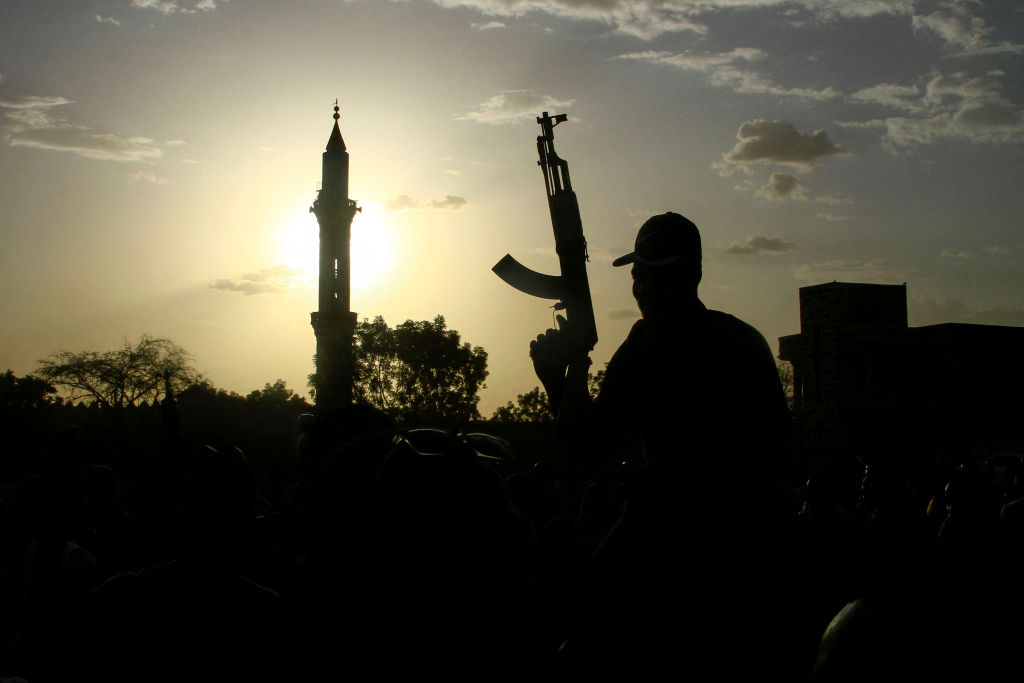ADF STAFF
As Sudan’s civil war drags on, experts are pointing to the role played by outside interests in prolonging it and making it deadlier.
“There’s a lot of resources and money that is being invested in this war, particularly on the RSF side,” Hala al-Karib, regional director for the Strategic Initiative for Women in the Horn of Africa, told Voice of America.
Since April 15, 2023, the Rapid Support Forces (RSF) has fought the Sudanese Armed Forces (SAF) in a battle for supremacy over Sudan that has killed an estimated 16,000 people and forced nearly 9 million to flee their homes. Both sides have benefited from the support of foreign actors that have poured weapons and money into the country, giving neither side an incentive to seek peace.
A recent United Nations analysis named the United Arab Emirates (UAE) as a key supporter of the RSF. According to investigators, the UAE has supplied weapons disguised as humanitarian aid intended to help Sudanese people sheltering in eastern Chad. The RSF also has received handheld surface-to-air missiles and other weapons from Russia’s Wagner Group mercenaries, now known as Africa Corps, via their bases in Libya, where they are allied with Field Marshal Khalifa Haftar.
Africa Corps had a long-running relationship with the RSF and its leader, Gen. Mohamed Hamdan “Hemedti” Dagalo. The two groups smuggled gold from RSF-controlled mines in western Sudan to markets in the UAE. Hemedti and the RSF keep their finances in the UAE. Injured RSF fighters are treated at UAE hospitals.
Since taking control of Africa Corps, Russia’s government has shifted its support toward the SAF, commanded by Gen. Abdel Fattah al-Burhan. As head of Sudan’s Transitional Sovereignty Council, al-Burhan is the de facto leader of Sudan. Al-Burhan also gets support from Sudan’s long-time ally Egypt, and from Iran, which is supplying the SAF with Mohajer-6 military drones.
“Both sides have continued to violate the laws of armed conflict in multiple ways, with the support of outside actors,” Nathaniel Raymond, executive director at the Yale School of Public Health’s Humanitarian Research Lab, told VOA.
Russia and the UAE both seek military footholds on Sudan’s Red Sea coast. Observers warn that granting outside forces access to Sudan’s coast could lead to deeper troubles.
“It is well known that Russian intervention in Syria started with acquiring a naval base,” analyst Yassir Arman wrote recently in Dabanga Sudan. “These prospective alliances will anger several neighboring countries that do not want to see foreign bases on the Red Sea.”
Analysts have said Russian port access in Sudan could be used to buttress Russia’s presence from the Central African Republic and Libya, which border Sudan, all the way to Burkina Faso and Mali, where the Africa Corps operates.
Al-Burhan began deepening Sudan’s long-standing relations with Russia in late 2023 and in May signed a deal with Russia to build a logistical operations center on the coast in exchange for weapons. Analyst Liam Karr at the Institute for the Study of War wrote recently that the operations center is a likely precursor to a Russian naval base.
In early June, Sudanese officials visited Russia to strengthen military and economic ties.
The inflow of weapons to the RSF and SAF violates U.N. sanctions imposed on Sudan in 2005 in response to genocide in Darfur by the precursor to the RSF. It includes an embargo on arms and ammunition.
Mohamed Ibn Chambas, chair of the African Union panel on Sudan, has said foreign actors are complicating efforts to negotiate a cease-fire that would stop the fighting.
Rosemary Anne DiCarlo, U.N. undersecretary-general for political and peacebuilding affairs, told the Security Council in April that foreign actors feed the fighting, which has no end in sight.
“If the parties have been able to sustain their confrontation, it is in no small part thanks to the material support they receive from outside the Sudan,” DiCarlo said. “These external actors continue to flout the sanctions regime imposed by the Council to support a political settlement, thereby fueling the conflict. This is illegal. It is immoral. And it must stop.”

